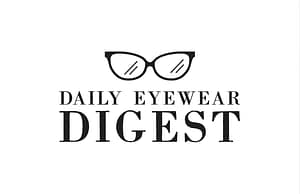Your eyes are one of your most valuable assets, yet their health often gets overlooked in the hustle and bustle of daily life. With 2025 just around the corner, now is the perfect time to commit to resolutions that prioritize your eye health. By adopting these practical and easy-to-follow strategies, you can ensure your vision remains sharp and healthy for years to come. Let’s dive into seven eye health resolutions you’ll actually stick to!
The Basics of Eye Health
Your eyes play a crucial role in your overall well-being. They not only help you perceive the world around you but also impact how you interact with it. Taking care of your eyes is about more than just avoiding glasses—it’s about ensuring your entire body benefits from good vision.
Common Eye Problems and Their Causes:
Many people face issues like nearsightedness, farsightedness, or astigmatism, but other concerns like dry eye syndrome, cataracts, and glaucoma are also prevalent. Poor nutrition, excessive screen time, inadequate sleep, and lack of protection against UV rays often contribute to these problems.
The Role of Lifestyle:
Simple lifestyle choices—like eating the right foods, reducing screen glare, and maintaining hydration—can significantly improve eye health. Let’s explore specific resolutions to make 2025 your clearest year yet.
Resolution 1: Schedule Regular Eye Exams
A comprehensive eye exam is the cornerstone of maintaining good eye health. It helps detect issues like glaucoma, macular degeneration, or retinal detachment early when they’re most treatable.
Why Annual Eye Exams Are a Must:
Annual exams ensure your prescription is up to date and help uncover conditions that don’t have obvious symptoms in their early stages.
What to Expect During an Eye Exam:
Your optometrist will assess your vision, check for refractive errors, and evaluate the overall health of your eyes. Expect tests like visual acuity, a slit-lamp exam, and eye pressure measurement.
How to Find a Trusted Eye Care Professional:
Seek recommendations from friends and family, read online reviews, and ensure your optometrist has the necessary credentials. Look for clinics equipped with the latest diagnostic tools for a thorough check-up.
Resolution 2: Adopt a Screen-Friendly Lifestyle
With screen time on the rise, digital eye strain has become a common issue. Whether for work or leisure, staring at screens for long periods can lead to discomfort.
The Effects of Prolonged Screen Time on Eyes:
Symptoms of digital eye strain include dry eyes, blurred vision, headaches, and difficulty focusing on distant objects.
Tips to Reduce Digital Eye Strain:
- Follow the 20-20-20 Rule: Look at something 20 feet away for 20 seconds every 20 minutes.
- Adjust Screen Settings: Use night mode and reduce brightness to minimize glare.
- Use Proper Lighting: Avoid working in overly bright or dim environments.
Blue Light Glasses: Are They Worth It?
While blue light glasses help reduce glare, their efficacy in protecting against digital strain is debated. Pair them with other strategies like screen breaks for maximum comfort.
Resolution 3: Eat for Better Vision
Your diet plays a significant role in maintaining healthy eyes. Nutrients like vitamins A, C, E, and zinc can protect against age-related vision issues.
Nutrients Essential for Eye Health:
- Vitamin A: Prevents dry eyes and night blindness.
- Lutein and Zeaxanthin: Found in leafy greens, these protect against macular degeneration.
- Omega-3 Fatty Acids: Essential for retinal function and tear production.
Eye-Healthy Foods to Include in Your Diet:
- Carrots and sweet potatoes (rich in beta-carotene).
- Spinach, kale, and broccoli (packed with antioxidants).
- Fish like salmon and mackerel (high in omega-3s).
Supplements for Vision:
If your diet lacks key nutrients, consider supplements. However, consult a doctor before starting any regimen to avoid potential side effects.
Resolution 4: Protect Your Eyes from UV Damage
UV rays can cause cataracts, macular degeneration, and even cancer. Shielding your eyes from the sun is essential year-round.
Understanding UV Rays and Their Impact on Eyes:
Both UVA and UVB rays can damage your cornea and retina over time. Prolonged exposure increases the risk of eye-related diseases.
How to Choose the Right Sunglasses:
- Look for UV400-rated lenses that block 100% of UV rays.
- Wraparound styles provide additional side protection.
- Polarized lenses reduce glare, making them ideal for outdoor activities.
Protective Measures for Every Season:
Even on cloudy days or during winter, UV rays can penetrate and cause harm. Always wear sunglasses or UV-protective goggles when outdoors.
Resolution 5: Commit to Proper Eye Hygiene
Eye infections and irritation often result from poor hygiene. Simple practices can significantly reduce your risk.
Avoiding Eye Infections Through Cleanliness:
Wash your hands before touching your eyes or applying makeup. Avoid sharing items like towels or eye makeup with others.
Best Practices for Contact Lens Wearers:
- Clean lenses with the recommended solution daily.
- Never sleep with your lenses unless they’re extended-wear types.
- Replace lenses as per the prescribed schedule.
The Importance of Removing Makeup Before Bed:
Leaving eye makeup on overnight can block glands and lead to infections or irritation. Use a gentle cleanser to remove every trace.
Resolution 6: Practice Good Sleep Habits
Quality sleep doesn’t just refresh your body—it rejuvenates your eyes.
How Sleep Improves Vision Health:
During sleep, your eyes rest and repair. Insufficient sleep can cause dry eyes, twitching, and even blurred vision.
The Connection Between Poor Sleep and Eye Issues:
Conditions like sleep apnea can increase your risk of glaucoma. Prioritize sleep to keep your eyes healthy.
Tips to Achieve Better Sleep for Healthy Eyes:
- Stick to a consistent sleep schedule.
- Avoid screens an hour before bedtime.
- Create a relaxing bedtime routine to unwind.
Resolution 7: Stay Active and Exercise
Physical activity boosts circulation, improving oxygen and nutrient delivery to the eyes.
How Physical Activity Enhances Eye Health:
Regular exercise reduces your risk of diabetes and high blood pressure, which are major causes of vision problems.
Exercises to Alleviate Eye Strain:
- Palming: Gently cup your hands over closed eyes for relaxation.
- Focus Shifting: Alternate between near and far objects to strengthen focus.
Eye-Relaxation Techniques:
Try yoga poses like child’s pose or meditation to reduce overall stress, benefiting your eyes.
Creating Sustainable Eye Care Habits
Making your resolutions last is the key to long-term eye health.
Building Resolutions That Last:
Start small, focus on one habit at a time, and track your progress.
Overcoming Challenges:
Common obstacles include forgetfulness or lack of motivation. Set reminders or pair habits with daily routines.
Tracking Your Progress:
Use a journal or app to monitor changes in your vision and adherence to resolutions.
Future Innovations in Eye Care
The year 2025 promises exciting advancements in vision health.
Advances in Eye Care Technology:
AI-powered diagnostic tools and robotic surgeries are becoming more accessible.
The Potential of Wearable Tech:
Devices that monitor eye health in real time can help you stay proactive.
What to Watch for in 2025:
Stay updated on breakthroughs like gene therapies for hereditary eye conditions.
FAQs About Eye Health Resolutions
What is the best diet for maintaining eye health?
A diet rich in leafy greens, fatty fish, and colorful vegetables is ideal for vision.
How often should I visit an eye doctor?
Schedule annual eye exams or more frequent visits if you have specific concerns.
Are there exercises to improve eyesight naturally?
While exercises can reduce strain, they cannot correct refractive errors. Consult an optometrist for clarity.
Do blue light glasses protect against digital eye strain?
They can reduce glare but should be paired with screen-time management strategies.
What are the early signs of common eye diseases?
Blurred vision, halos, or eye pain are common signs to watch out for.
Can UV rays affect vision in winter?
Yes, UV rays are present year-round, so protection is essential.
Conclusion
These seven resolutions offer a practical roadmap to safeguarding your vision in 2025. By prioritizing regular eye exams, adopting healthier screen habits, and maintaining a nutrient-rich diet, you can enjoy clearer, healthier eyesight. Make 2025 the year you see the world—and yourself—better than ever!

